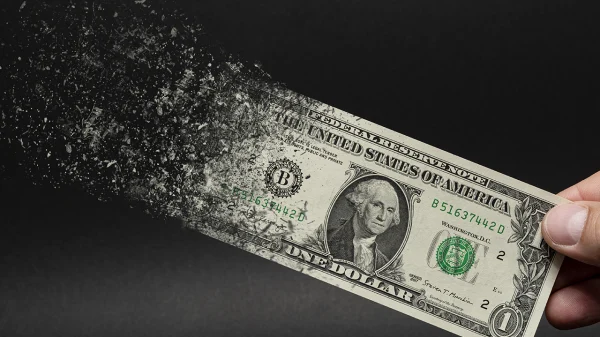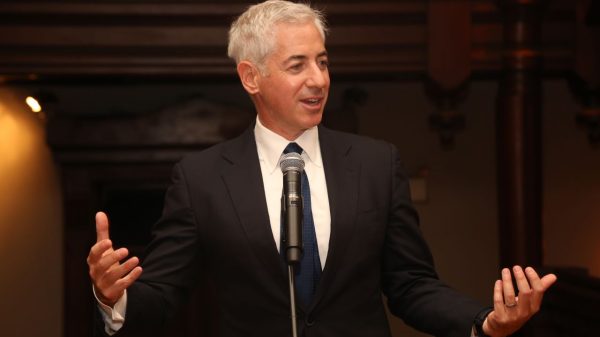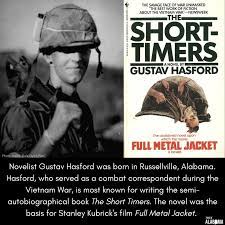He was a novelist, poet, marine, Vietnam War correspondent, and screenwriter. His semi-autobiographical book, The Short-Timers, was the basis for Stanley Kubrick’s movie, Full Metal Jacket. He survived the horrors of war in Vietnam, only to be prosecuted and sent to prison for the ridiculous crime of overdue library books. Of all the terms that could be used to describe this man from Alabama, he could definitely be labeled a rebel….and his life, a tragic comedy. This is the fascinating story of Alabama native and author, Gustav Hasford.

The Alabama Years
Jerry Gustave Hasford was born in Russellville, Alabama, in 1947. Some knew him as “Jerry” in his younger days, while most of his close friends called him “Gus” as an adult, as he wrote under the pen name Gustav Hasford. Friends close to Hasford said he always wanted to be a writer, even as a kid. He had his first article published when he was 14 in Boys Life Magazine. Later, while still in his teens, he wrote for the Franklin County Times newspaper and the regional paper, The Northwest Alabamian. With the help of his grandfather, he borrowed money and started his own quarterly magazine for writers called Freelance when he was only 16. He attended Russellville High School but didn’t graduate—not because he couldn’t, but because he refused to graduate as a way to protest Alabama’s poor education system. He said in a later interview, “I didn’t want to validate what they were doing,” after he found out that Alabama was ranked 50th in the nation in public education. Already, Hansford was a rebel and freethinker. Friends often said he was stubborn to a fault. That trait would sadly be his undoing years later.
The Marine Years and Vietnam
Hasford enlisted in the Marines in 1966 as a basic military journalist. He wrote articles about Vietnam for Leatherneck Magazine, Sea Tiger, Pacific Stars and Stripes, and a military base newspaper where he was stationed in North Carolina. Simply writing about the war wasn’t enough for Hasford, however. In a 1987 interview by Grover Lewis for the Los Angeles Times Magazine, Hasford said,
“When you’re reading all this stuff about big events happening somewhere, you get really curious, to the point of it being painful to want to know the real score. I applied to go to Vietnam. It’s called “requesting mast,” which is a legal maneuver that you can do in the military if you feel you’re being oppressed. So I went to Vietnam even though I only had 10 months left to serve, because, in a sense, I specifically demanded to be sent to Vietnam, and so they couldn’t think of any reason not to do it, and in fact, they were perfectly willing. They had plenty of spots to send me.”
Hasford was promptly shipped off to the war in Vietnam, assigned to the 1st Marine Division during the Tet Offensive and was also part of the overland mission, Operation Pegasus. He was awarded the Navy and Marine Corps Achievement Metal with an added Combat Distinguishing “V” device for his time in the Battle of Hué in 1968. While serving in Vietnam, he cultivated friendships that he kept throughout his life. Most of all, he experienced the war firsthand, which made him one of the most realistic writers of the Vietnam War era.






































